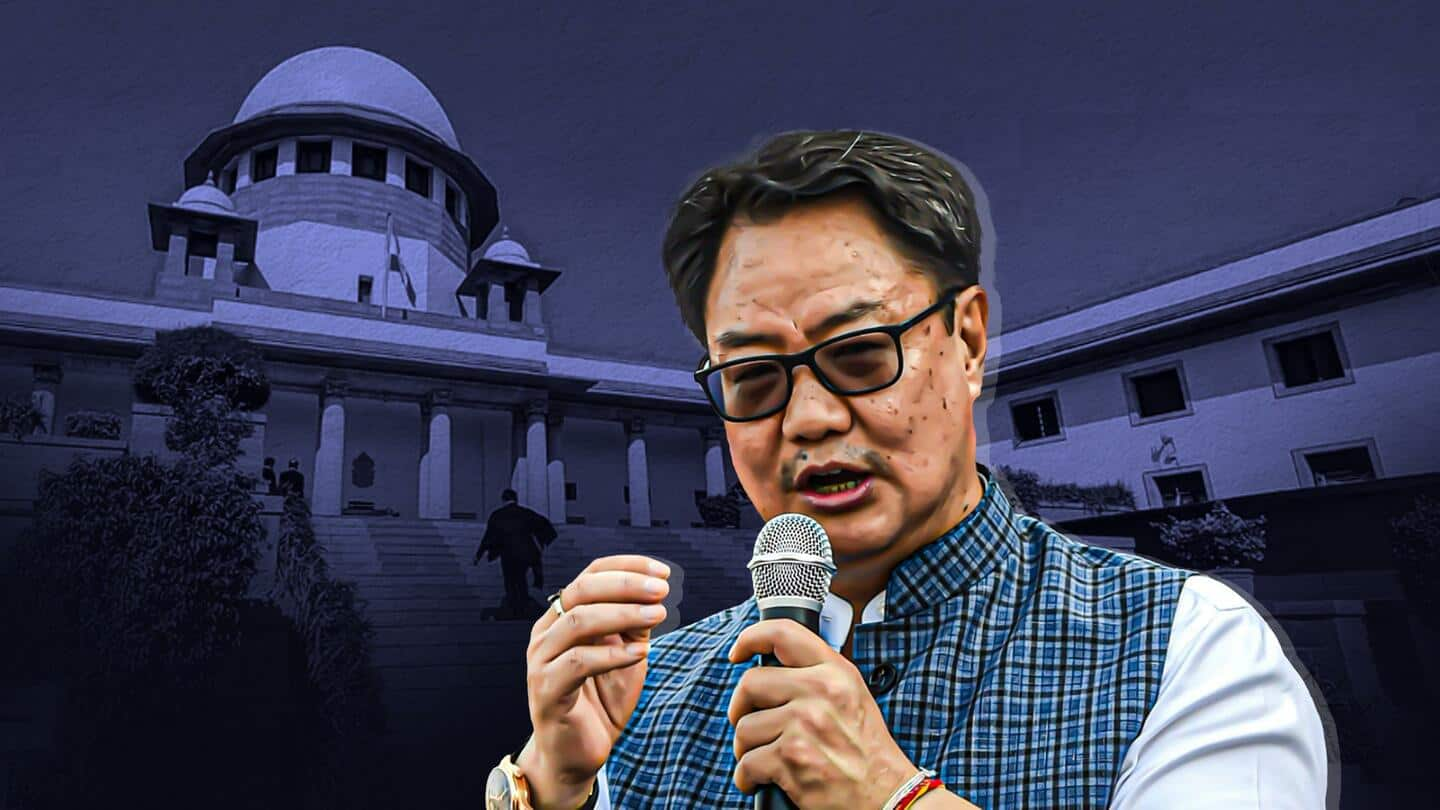
'Grave concern': Rijiju on SC publishing IB, R&AW classified reports
What's the story
Union Law Minister Kiren Rijiju on Tuesday objected to the Supreme Court making public confidential reports on judicial appointments. Calling the SC Collegium's decision to divulge government objections to judge selections based on intelligence reports "grave," he added it would have serious ramifications. The collegium published the government's objections to three candidates recommended for judges and its counter on the SC website last week.
Context
Why does this story matter?
Rijiju's comments come amid an ongoing conflict over judicial appointments between the government and the judiciary. In November, Rijiju called the collegium system "opaque" and said India was the only country where judges appoint judges. Since coming to power in 2014, the Bharatiya Janata Party-led central government has been at odds with the judiciary, which accuses the former of attempting to control judicial appointments.
Statement
What exactly did Law Minister Rijiju say?
Speaking to the media on Tuesday, Rijiju termed the Supreme Court's move to publish intelligence reports—on candidates recommended for judges—by the Research and Analysis Wing (R&AW) and the Intelligence Bureau (IB) as a "grave concern" and said he would "react at an appropriate time." He said such moves would have serious implications as officials preparing such sensitive reports would think twice in the future.
Comments
Law Ministry, judiciary cannot work in isolation: Rijiju
Asked if he planned to raise the issue with the Chief Justice of India (CJI) DY Chandrachud, Rijiju said, "It's a contentious issue...let's leave it for another day." However, he said his ministry and judiciary cannot work in isolation. "He [Chandrachud] is the head of the judiciary, I am the bridge between the government and the judiciary. We have to work together," he added.
Controversial disclosure
Supreme Court's public disclosure triggers fresh conflict
According to NDTV, the Supreme Court also publicly posted its letters disputing the government's objections to the appointment of three judges, including openly homosexual advocate Saurabh Kirpal, on its website. The move allegedly threw the security and intelligence agencies into a tizzy since such reports analyzing potential candidates for the higher judiciary—high courts and the Supreme Court—were reportedly disclosed for the first time.
Conflict
Ongoing tussle between central government and judiciary
The tussle between the government and the Supreme Court Collegium over the appointment of judges has been ongoing for some time now. The government is not satisfied with the current procedure of judicial appointments and has also written to the CJI seeking the inclusion of government representatives in the collegium. Earlier, Vice President Jagdeep Dhankhar also raised questions about the collegium system.
Recommendations
Law Ministry repeatedly rejects SC Collegium's recommendations
The scuffle between the SC Collegium and the Centre started when the Law Ministry repeatedly rejected the former's recommendations for judicial appointments, as per reports. In November 2022, only two of the SC Collegium's 21 recommendations for appointments to high courts were accepted. Those accepted include the appointment of Santosh Govind Chapalgaonkar and Milind Manohar Sathaye as Bombay HC additional judges.
Gay judge
Rejection of homosexual advocate Saurabh Kirpal
Notably, advocate Kirpal, who has openly admitted to being gay, has already been recommended twice for elevation as a Delhi High Court judge by the SC Collegium, once when it was led by then-CJI NV Ramana and again under current CJI Chandrachud, too.
About
What is the collegium system?
The collegium system allows the CJI and a panel of four senior-most judges of the Supreme Court to recommend appointments and transfers of judges. It was framed by the apex court's judgments in the "Three Judges Case" (October 28, 1998). However, the collegium system was earlier criticized by the Centre for creating an empire within the empire.